

Publications Regarding Elections 2020
Articles

Disqualification of Knesset Lists and Candidates: Q&A
Written By: Prof. Yuval Shany, Dr. Amir Fuchs
Disqualifying candidates and lists for the Knesset violates one of the most fundamental democratic rights, the right to vote and to be elected. Therefore, it must be done with the utmost care, judgment and objectivity. Who can reject candidates and lists for the Knesset, and on what is the criteria? IDI experts answer these questions.

Can a Criminal Defendant be Banned From Forming a Government?
Written By: Dr. Dana Blander
Minister Gideon Saar's proposed bill preventing a criminal defendant from forming a government is unprecedented, but so is the reality in Israel.
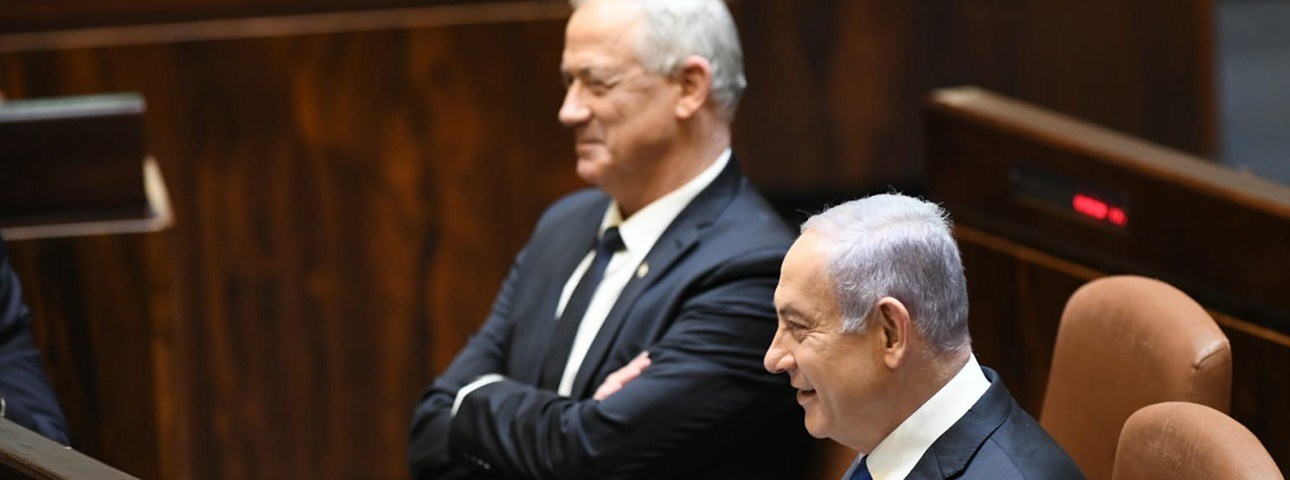
Israel’s Cease-Fire Government Should Promote Healing, Not Division
Written By: Yohanan Plesner
Netanyahu and Gantz could use their unity government to put in place a 'democratic ceasefire' and speed Israel’s economic recovery rather than entrenching political deadlock.

Israel’s 35th Government: A Portrait
Written By: Prof. Ofer Kenig
After 18 months of political deadlock, Israel’s 35th government was sworn in - and in many ways it's quite unique.
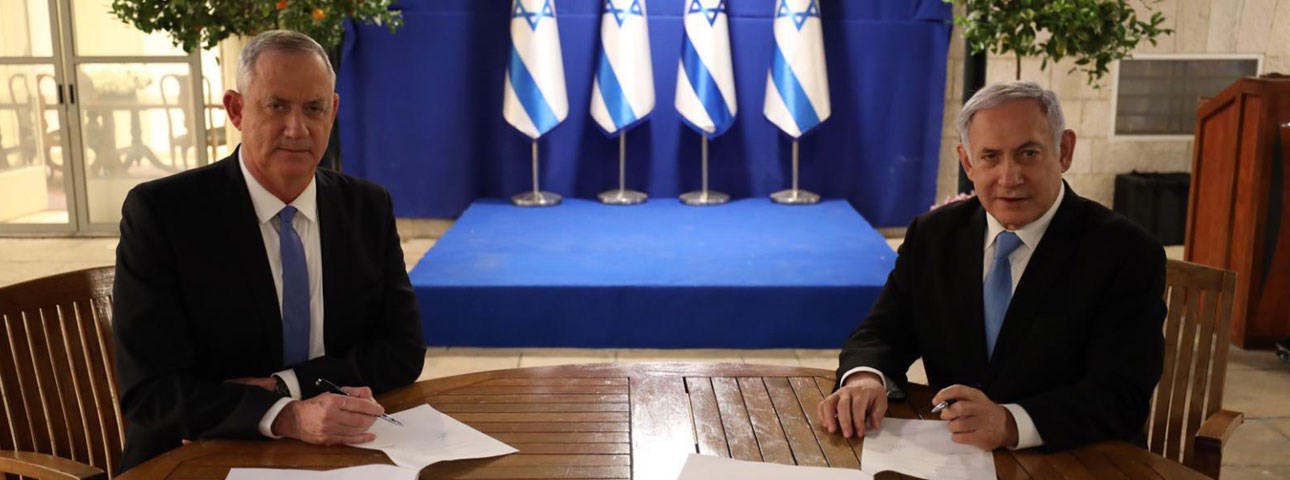
The Rotation Agreement — One State, Two Governments
Written By: Dr. Assaf Shapira
The rotation mechanism agreed upon creates a governmental structure, unprecedented neither in Israel or anywhere else

Two Hedgehogs and a Hydra
Written By: Prof. Yedidia Z. Stern
This is a familiar plague: rewriting the game rules of democracy to suit changing political circumstances has become the norm in Israel.

Will the Coronavirus Defeat the Populism Epidemic?
Written By: Dr. Dana Blander
The coronavirus is an international threat but will it stem the growth of populism around the world?

Coalition Agreement – What to Expect Moving Forward
Written By: Yohanan Plesner
IDI President Yohanan Plesner held an online media briefing and Q&A session on the new coalition agreement between the Likud and Blue and White parties.

76% of Israelis are Afraid of Getting Coronavirus
Written By: Prof. Tamar Hermann, Dr. Or Anabi
The Israeli Voice Index for March 2020 found that 76% of Israelis are concerned that they or a family member will contract the coronavirus – up from 34% in February.
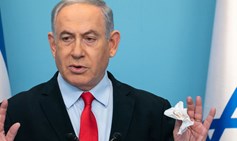
Prime Minister Netanyahu - 11 Consecutive Years
Written By: Prof. Ofer Kenig

Limit the Number of Ministers and Deputies
In light of the Movement Towards a National Emergency Government: 30 Ministers Would be Excessive in Comparison to other Parliamentary Democracies; The cap on the number of ministers and their deputy minister should remain in place.
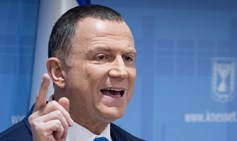
Speaker of the Knesset's Resignation - Statement
Yohanan Plesner, President of the Israel Democracy Institute, reacted to the Speaker of the Knesset Yuli Edelstein's resignation

A Unity Government to Deal with the Emergency?
Written By: Dr. Dana Blander, Prof. Ofer Kenig
Will the coronavirus crisis result in an unity government, which can, at least temporarily, resolve Israel's political deadlock? IDI experts explain.
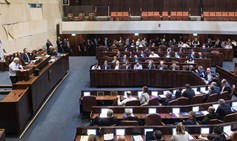
Parliaments Around the World
Written By: Dr. Chen Friedberg, Avital Friedman, Dr. Assaf Shapira, Dr. Shany Mor
As the Knesset struggles to resume its work, IDI took a look at how parliaments around the world are putting into place processes and mechanisms that enable them to operate during the coronavirus pandemic so they can fulfill the vital role they play in democracies.
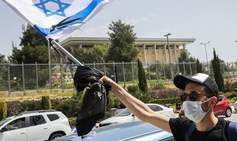
Politics in a Time of Corona
Written By: Yair Sheleg
Israel finds itself in an unprecedented political situation at a time it must face a worldwide pandemic.
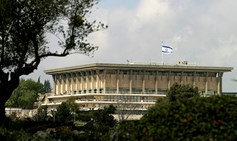
The Functioning of the Knesset during the Coronavirus Emergency
Written By: Dr. Chen Friedberg, Avital Friedman, Dr. Assaf Shapira, Dr. Shany Mor
In this paper, we argue that in a public health emergency, such as the one we are experiencing now, when unprecedented means are being employed in the fight against COVID-19, the Knesset’s smooth functioning is even more essential, especially with regard to the need for strict and effective oversight of the government.

Virus and Democracy
Written By: Prof. Yedidia Z. Stern
Even a life-saving measure must be weighed against the threat it poses to democracy -- we do it all the time

The Knesset Must Resume its Work Immediately
Just as in parliaments around the world - the Israeli Knesset must resume its work.

The COVID-19 Crisis - Economic Impact and Economic Policies
Written By: Prof. Karnit Flug
What will be the economic ramifications of the coronavirus outbreak on the Israeli economy? Prof. Karnit Flug explains.

Israel's Third Elections Marks the Defeat of Rabbi Kook’s Dream
Written By: Prof. Yedidia Z. Stern
Let’s imagine a conversation between Rabbi Abraham Isaac Hacohen Kook, religious Zionism’s greatest thinker, and the four Yamina Party leaders.
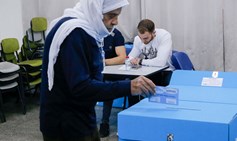
The Arab Israeli Vote in the 23rd Knesset Elections
Written By: Dr. Arik Rudnitzky
The people had their say in these elections. A majority of the Arab Israeli public (65%) turned out to proclaim a resounding vote of confidence in the Joint List

Governments of Experts: Desperate Measures for Desperate Times?
Written By: Prof. Ofer Kenig
The results of this third round of elections would seem to indicate that, once again, no decisive victory has been won, and that the Israeli political system is likely to remain stuck at the same dead end at which it has been stranded for the last year. Could a government of experts resolve the crisis?

Incumbent Minority Governments
Written By: Prof. Ofer Kenig
Although there is no precedent in Israel's history for forming a minority government immediately after an election, minority governments around the world are far from a rarity.

Prime Minister on Trial - Explainer
Written By: Dr. Amir Fuchs
Prime Minister Netanyahu’s trial in the Jerusalem District Court is to begin on March 17th. Dr. Amir Fuchs, a researcher at the Israel Democracy Institute provides responses to key questions as to what this process will look like.

All About Splits
Written By: Dr. Assaf Shapira
How can MKs 'cross the floor' and what sanctions might they face? An explainer by Dr. Assaf Shapira

What’s at Stake in This Election?
Written By: Prof. Yedidia Z. Stern
A 3-pronged plan to change the balance of power in government threatens everyone who cares about human rights, regardless of politics
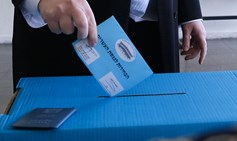
30% of the Public Predicts a Fourth Election
With only a few days to the Elections, the February Israeli Voice Index finds that Jewish Israelis are Paying Less Attention, while a Majority of Arab Israelis are Following with the Same or Increased Interest. 30% of the Public Predicts a Fourth Election.
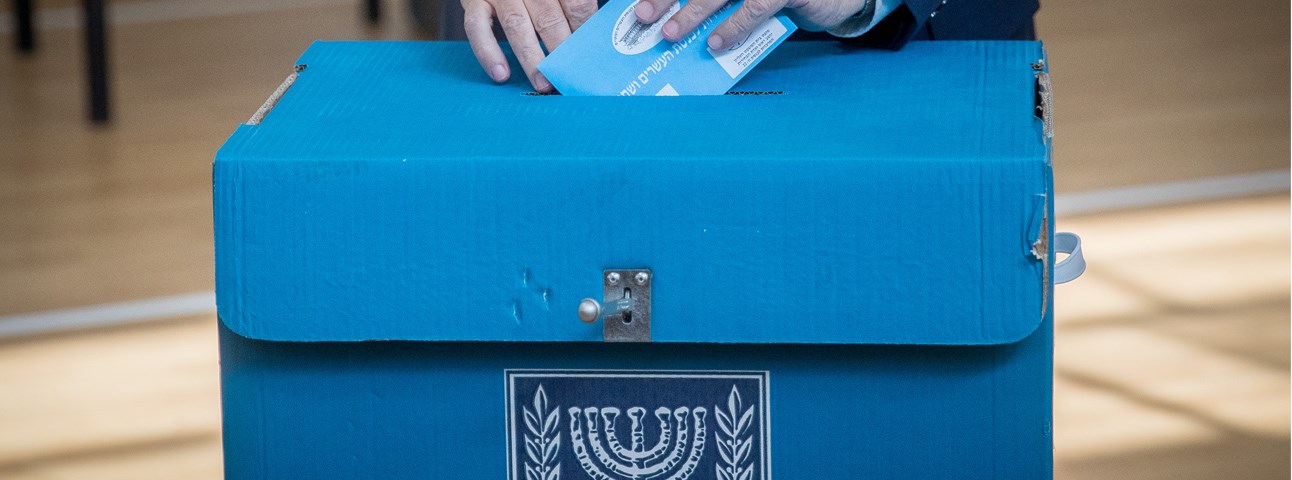
5 days to the Election: Jewish Israelis are Paying Less Attention
Written By: Prof. Tamar Hermann, Dr. Or Anabi
5 days to the Elections: Jewish Israelis are Paying Less Attention. A Majority of Arab Israelis are Following with the Same or Increased Interest. 30% of the Public Predicts a Fourth Election.

A New Political Card
Written By: Dr. Arik Rudnitzky
Has the "Deal of the Century" injected energy into Israel's third election and perhaps provided an incentive for Arab Israelis to turn out in higher numbers than September? Arik Rudnitzky uses the village of Bartaa as a possible case study.

Getting Stay-at-Home Potential Voters to the Polls for Israeli Elections
Written By: Dr. Assaf Shapira, Dr. Ofer Bernstein
Rather than “packaging” voting as a political, civic and moral obligation, we should try instead to get these potential voters to think about the personal benefits to be gained by going to the polls.

Stop the Use by All Parties of Election-Management Software
The Israel Democracy Institute has submitted a professional opinion to the chair of the Central Elections Committee, Justice Neal Hendel, asking the Committee to prohibit the use of election-management software until appropriate regulations for its use are in place.

"Deal of the Century" and Annexation - Overview
Written By: Prof. Amichai Cohen
The “Deal of the Century” and Human Rights: An overview of territorial exchanges and the status of the Palestinians in the annexed Areas

Third Time's a Charm?
Written By: Yohanan Plesner
With two weeks to go, Yohanan Plesner presents the key issues to look out for in Israel's unprecedented third election and what – if anything – will determine if a stable government will finally be formed.
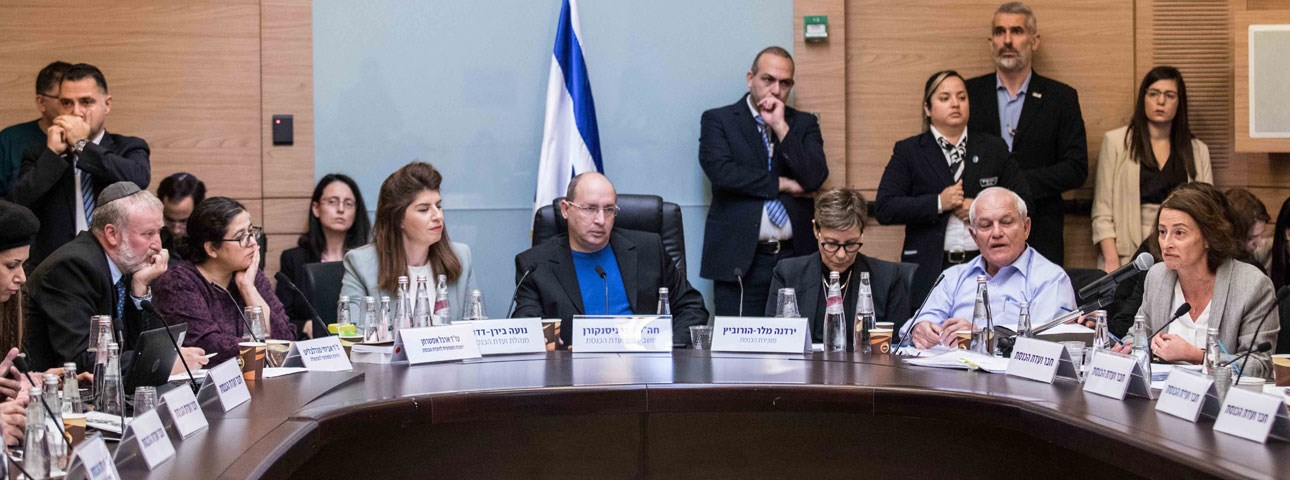
The Pot Calling the Kettle Black
Written By: Prof. Yedidia Z. Stern
In the case of a MK against whom the attorney-general has decided to file an indictment, the members of his party and of his Knesset bloc vote as one.
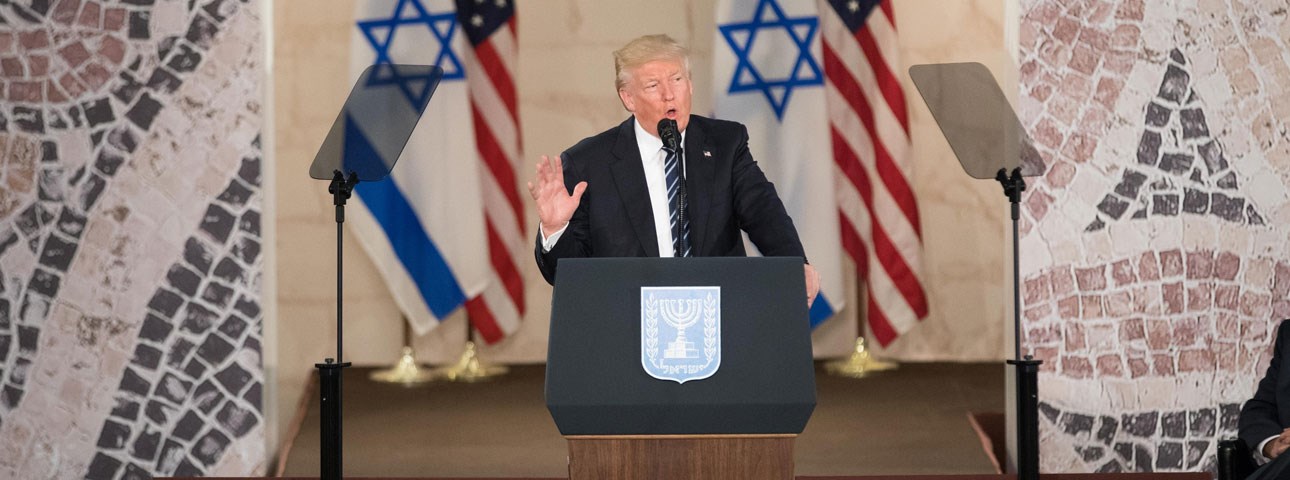
Can Israel Recognize a Palestinian State?
The January Israeli Voice Index reveals that more Israelis support Israeli recognition of a Palestinian state than those who oppose it.

Israelis Believe Netanyahu's Investigations Will have the Greatest Impact on the Vote
Written By: Prof. Tamar Hermann, Dr. Or Anabi
January's Israeli Voice Index found 32% of Israelis believe Netanyahu's investigations will be the issue with the greatest impact on voters in the upcoming Knesset elections.
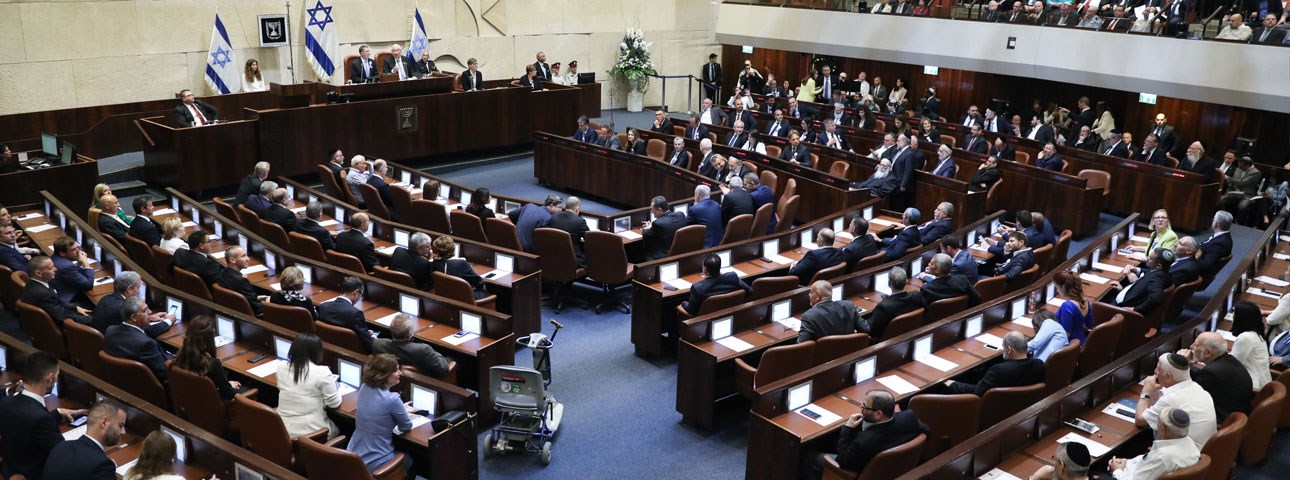
The State of the Highly Personalized Israeli Democracy
Written By: Prof. Gideon Rahat
At this writing, Israel seems to be headed towards its third elections within a year. Israel has been governed for almost a year by a caretaker government, and no one can be sure that the next elections will resolve the stalemate. While this state of affairs may fulfill the dreams of libertarians or anarchists, for most others – it looks more like a nightmare.
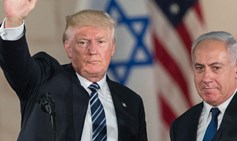
Can the “Deal of the Century” be Implemented Under a Transitional Government?
Written By: Prof. Amichai Cohen, Dr. Amir Fuchs
What are the legal barriers standing in the way of the current government implementing the U.S.'s “Deal of the Century” peace plan?

Where Have the Parties Gone?
Written By: Yohanan Plesner
Political parties no longer fulfill the goals for which they were intended, rather they have become technical structures that are focused on the ranking of the candidates on their Knesset lists.

Rabbis in Politics—A Disaster for Both
Written By: Dr. Shuki Friedman
Rabbis are not necessarily any better or worse than other politicians.

What Will the 23rd Knesset Look Like?
Written By: Prof. Ofer Kenig
New record low of number of lists; Left-Center shrinks from eight lists in 2013 to three today; women’s’ representation continues to dither – less than 30 women MKs are expected
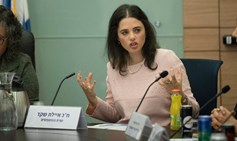
Women Representation in the 23rd Knesset
Written By: Dr. Assaf Shapira
After the party lists have been submitted Dr. Assaf Shapira analyzes expected representation of women in the 23rd Knesset based on the September 2019 elections
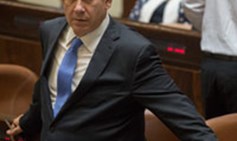
It Boils Down to Netanyahu’s Conspiracy Theories
Written By: Prof. Yedidia Z. Stern
Given the dark insinuations in the PM's request for Knesset immunity, a vote in his favor would be a vote of no-confidence in the rule of law
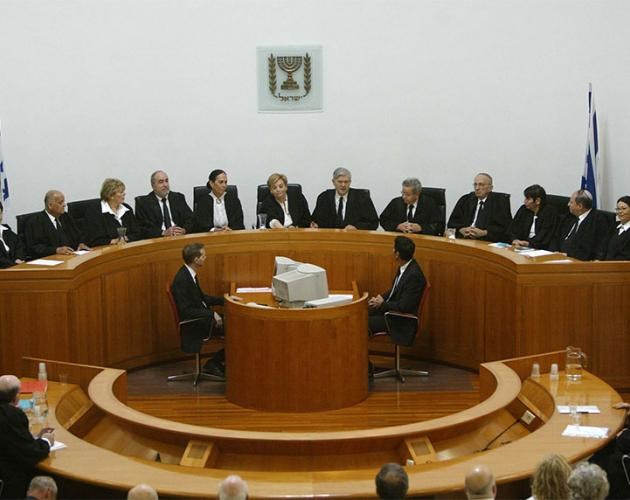
A Vote of Confidence in the Rule of Law
Written By: Prof. Yedidia Z. Stern
Regardless of the decision regardin PM Netanyahu's request for immunity - the debate will revolve around the more important question: the status of the rule of law in Israel

Majority of Israelis Think that Israel is Prepared for War
Written By: Prof. Tamar Hermann, Dr. Or Anabi
A majority of Israelis gave high grades when assessing Israel’s preparedness for war in three areas: the IDF’s combat readiness, the resilience of the population on the home front, and the political echelon’s decision-making ability concerning the objectives and management of the war. At the same time, Israelis do not think highly of the preparedness of the home front regarding protection of civilian facilities.
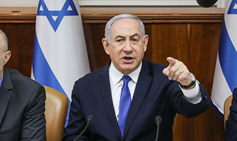
Immunity for the Prime Minister: Explainer
Written By: Prof. Yuval Shany, Dr. Amir Fuchs
IDI experts explain Israel’s immunity law, what happens when it’s requested and what the implications may be for the political system.

A Legal or Political Matter?
The political system is being dragged into elections for the third time within a year, for what seem to be extraneous reasons related to the question of how Netanyahu will handle his cases
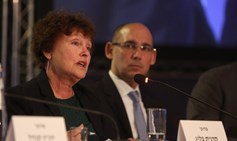
Ability to Make Economy Related Decisions Impaired
Prof. Karnit Flug, Vice President of IDI and Former Governor of the Bank of Israel spoke at the 2019 Eli Hurvitz Conference on Economy and Society: “With no government in place, the ability to make economy-related decisions is impaired. In the current situation, what is done depends entirely on what the Knesset Finance Committee is prepared to do."
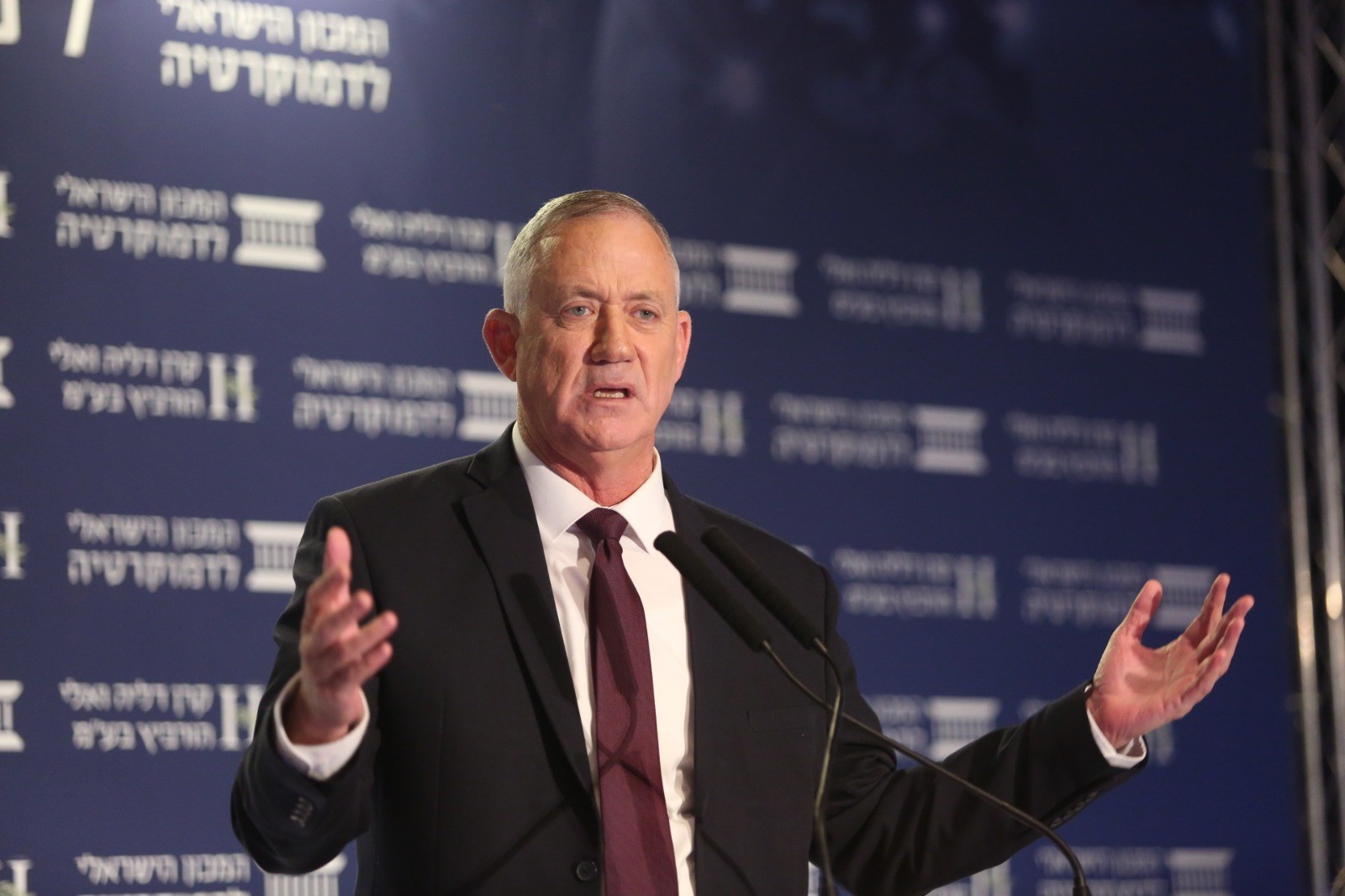
Israel is in Danger of Becoming a Weakened State
Benny Gantz, Chair of the Blue and White party and former IDF Chief of Staff spoke at the 2019 Eli Hurvitz Conference: "Government ministers bicker daily with the professional echelon - a situation that harms Israelis"
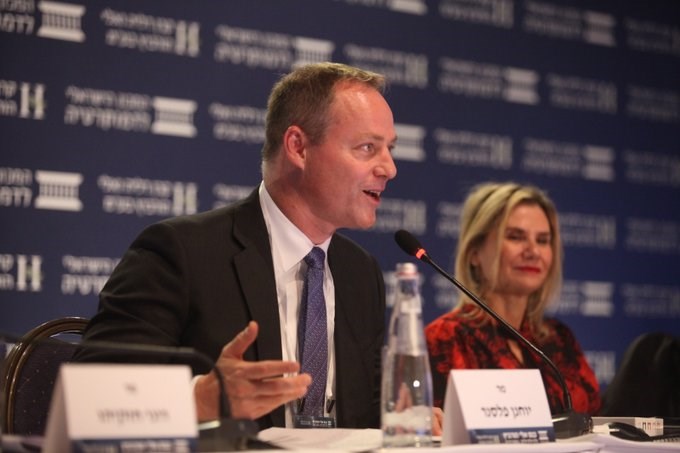
Israel’s Economy: Island of Stability with Troubling Trends
Yohanan Plesner, President of the Israel Democracy Institute and Prof. Eugene Kandel, CEO Start-Up Nation Central, open the two day conference, welcoming senior executives from the public and private sectors.
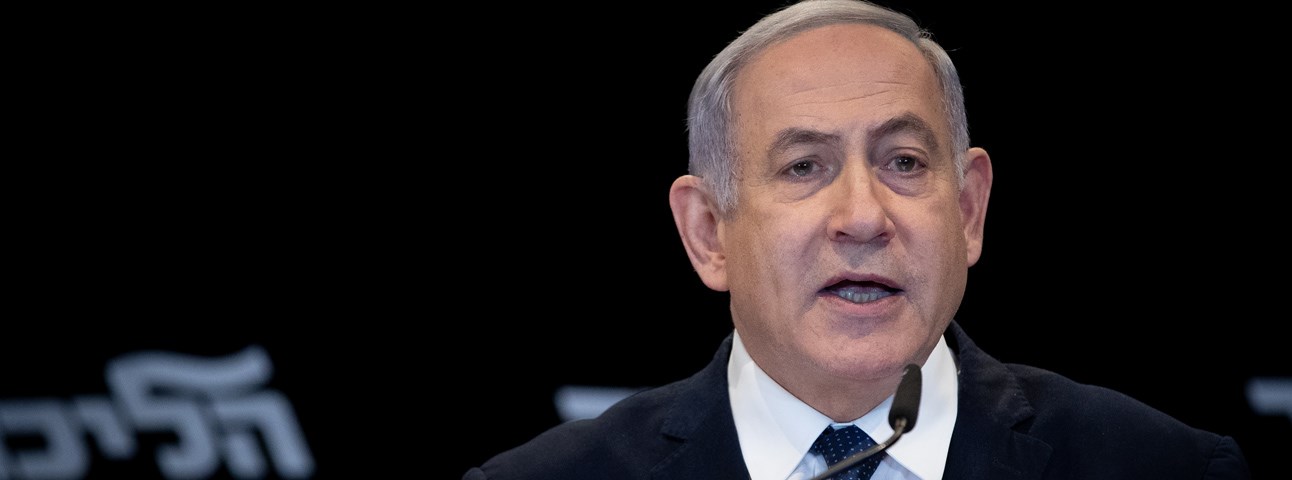
Only the Voters can Put a Prime Minister Out to Pasture
Written By: Prof. Yedidia Z. Stern
After lengthy deliberation, the attorney-general, who holds the statutory authority to file charges against him, decided to indict Netanyahu.

Israeli Voters - Not Judges
Written By: Prof. Yedidia Z. Stern
Israeli Voters, Not Judges, Must Determine Who Will Lead the Country Next

On the Knesset's Dissolution and Third Elections
Israel finds itself in yet another unprecedented moment and has officially entered the campaign period for a third national elections in less than 12 months. How can we prevent this from happening again in the future?

Is Third Time a Charm?
Written By: Prof. Ofer Kenig
Israel is gearing up for its third national elections in less than a year - how does this compare to other democracies around the world?
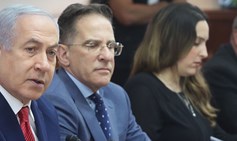
Remove Netanyahu Right Now on Grounds of Temporary Incapacity
Written By: Prof. Yuval Shany
There's an unacceptable, extreme conflict of interest between Netanyahu the accused and Netanyahu, head of the executive branch

Israel's Political Crisis and the Challenge of Populism
Written By: Prof. Yuval Shany
Actual policy making in a liberal democracy is based on sophisticated nuances.
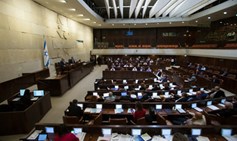
The Knesset is not a Sanctuary
Written By: Dr. Amir Fuchs
This claim was first put forth in a letter from the Knesset’s legal adviser, Eyal Yinon, to the speaker of the Knesset with regard to the situation of MK Haim Katz.

Justice in the Courtroom, Not in the Streets
Written By: Prof. Yedidia Z. Stern
Our level-headed, intelligent, rational prime minister has lost his good judgment and is inciting against some of the most important institutions of state

After Indictment - 59% of Israelis Think Netanyahu Should Step Aside
Written By: Prof. Tamar Hermann, Dr. Or Anabi
The November 2019 Israeli Voice Index finds that 35% of Israelis think PM Netanyahu should resign and stand trial – of the Likud voters - 37% agree

MK Liberman: " If third elections are held the outcome will be different"
MK Avigdor Liberman at IDI Annual Conference on Security and Democracy: "I fully trust the security forces know how to deal with threats in a professional manner uninfluenced by outside biases"

We Need to Talk about Cameras Right Now
Written By: Dr. Tehilla Shwartz Altshuler
They are everywhere, argued the PM after pushing to install them in polling stations. He's right, and that's exactly the problem

Do Not Turn the Knesset into a Sanctuary from the Law
IDI experts issue a statement calling for the Knesset to form a special House Committee to debate immunity

Some are Guilty, but All Are Responsible
Written By: Dr. Nasreen Haddad Haj-Yahya
When the PM smeared Arab Knesset members, those 'allies' who urged us to go and vote had a responsibility to protest. They didn't.

Are we Headed for Another Historic First?
Written By: Prof. Ofer Kenig, Dr. Assaf Shapira
Tomorrow, Gantz's mandate to form a government will end, and we are expected to enter an unparalleled stage in Israel - 21 days, during which a majority of Knesset members, at least 61, are allowed to ask the president to assign the mandate to anyone of the 120 MKs.

Israel's Real Minority Government
Written By: Dr. Amir Fuchs
The rhetoric accompanying the attempts to delegitimize a “minority government” is questionable. The current transitional government is supported only by 55 Knesset members, with 65 opposing it. If any government deserves the moniker ‘minority government,’ it is the one currently in office.

A Minority Government in Israel?
Written By: Dr. Assaf Shapira
The final results of the third election are in and Israel is in very much the same stalemate position as the previous two rounds - is a minority government the solution?
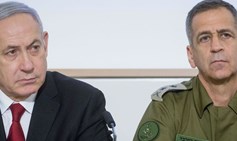
Who is Authorized to Decide on Military Actions that May Spark a Wider Conflict?
Written By: Colonel (Res.) Dr. Liron A. Libman
There is a vagueness about the authority to make fateful decisions for the country, including what even counts as war.

Can a Minority Government End the Deadlock in Israel?
Written By: Dr. Assaf Shapira
Assaf Shapira argues that if the choice is between a minority government and another round of elections, the former is the better option.
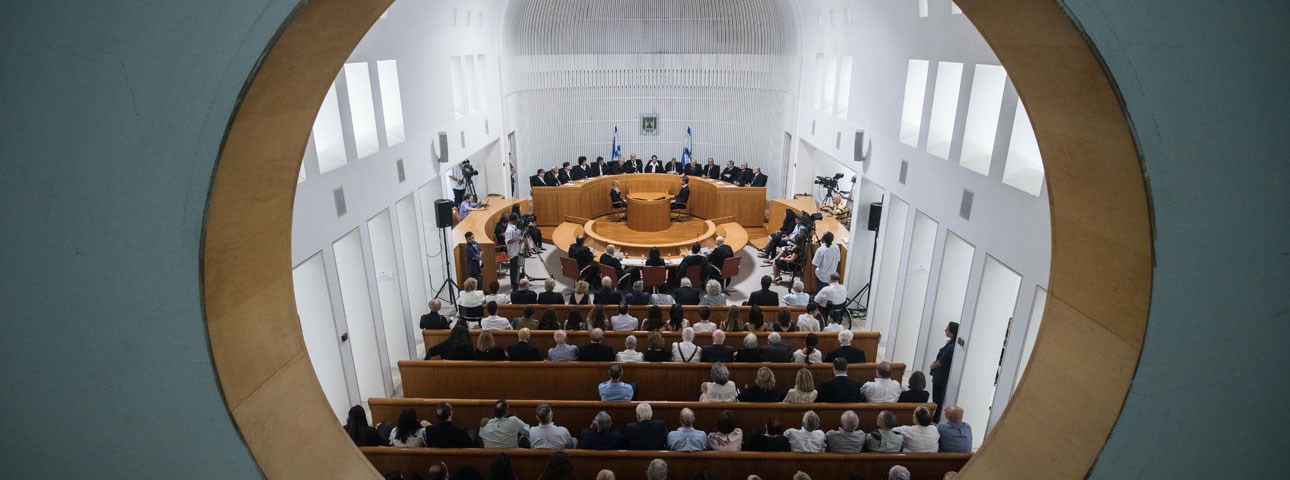
Assault on Israel's Judicial System: The Angel of History is Watching Us
Written By: Prof. Yedidia Z. Stern
Justice Minister Amir Ohana,has launched a fierce attack against the State Attorney’s Office. The Prime Minister who appointed him would be wise to remember that the angel of history is peeking over his shoulder.

Majority of Israelis Support their Parties Joining a Blue and White Coalition
Written By: Prof. Tamar Hermann, Dr. Or Anabi
October 2019 Israeli Voice Index revealed a decline in Israelis’ assessment of President Trump’s commitment to Israel’s security. The survey also found that 62% of Israelis support the parties they voted for in the last elections joining a Blue and White led coalition.

Despite The Election Tumult, Israeli Democracy Dodged A Bullet
Written By: Yohanan Plesner
Coalition negotiations continue and Israel does not yet have a government - but one thing is certain - Israeli democracy dodged a bullet.
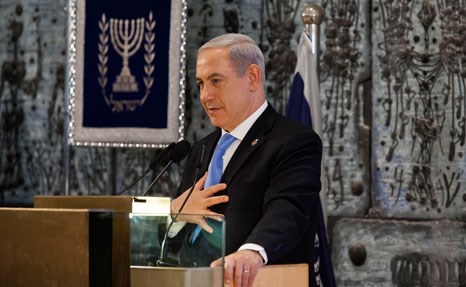
Netanyahu's Future
Written By: Dr. William Cubbison
Benjamin Netanyahu's legal problems are at the center of the current political quagmire. So what do Israelis think about the legal situation and what are the possible resolutions?
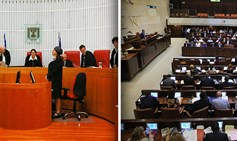
The Rule of Law: The Attack on the Principle of “All are Subject to the Law” in Israel
Written By: Dr. Amir Fuchs
Like all democracies, the principle of the "Rule of Law" exits in Israel. In recent years, there have been quite a few attempts to overcome this tenant, potentially causing long-lasting damage to public confidence in the justice system. Dr. Fuchs explains.

Benjamin Netanyahu Fails to Form a Government – What Happens Next?
Written By: Yohanan Plesner
While we cannot know for sure if Benny Gantz will succeed where Benjamin Netanyahu has failed, we can state with certainty that our political system of the past year has been characterized by deadlock, and this is not expected to end in the near future.

Majority of Israelis Think Netanyahu Should Resign
After Netanyahu returns mandate to the President: Most Israelis support a system based on 2 large parties and a Netanyahu-Gantz rotation for the position of prime minister. 53.5% of Israelis think Netanyahu should resign immediately, while almost half (47%) of right-wing voters believe that Netanyahu should resign if indicted.
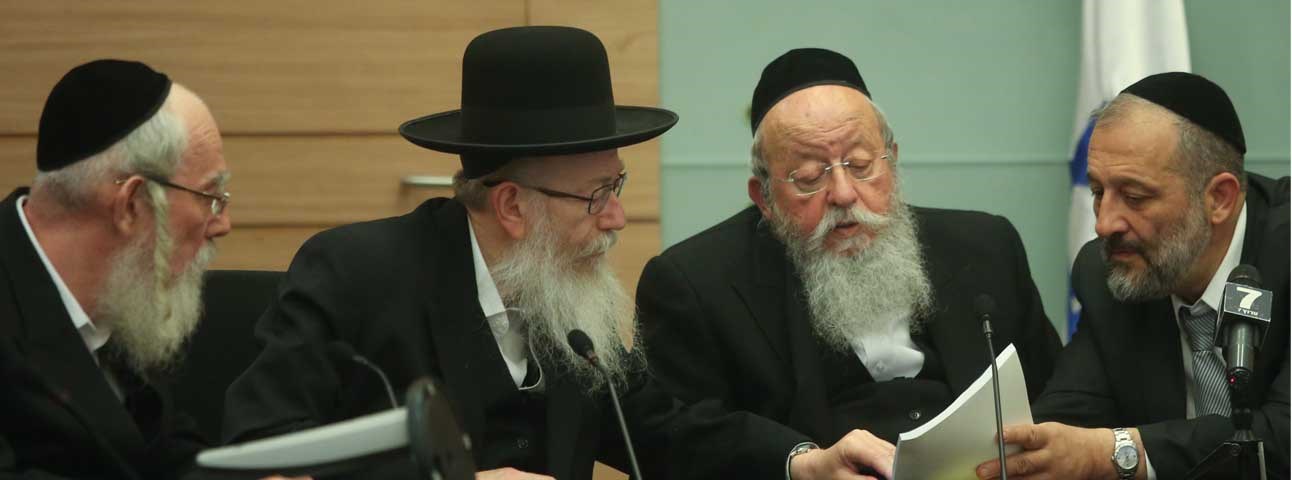
A Pyrrhic Victory
Written By: Dr. Gilad Malach
The results speak for themselves. Shas, headed by Arye Deri, registered a resounding success with traditional voters. But is this a long term victory?

Did the September Election Solve Anything?
Written By: Dr. William Cubbison
The failure to form a government in April and the subsequent second election surprised Israelis. Now, they might need to go to the polls for a third election in early 2020. What do Israelis think about this unprecedented political reality?

A Majority of Israelis Prefer a Unity Government
Written By: Prof. Tamar Hermann, Dr. Or Anabi
September 2019 Israeli Voice Index found that a majority of Israelis prefer a unity government. Additionally the majority of Israelis do not think the State should offer Benjamin Netanyahu a plea bargain or that he would agree to one.

In Praise of Normalcy
Written By: Prof. Yedidia Z. Stern
Despite all the fears, voter turnout was quite respectable (the third-highest rate in the seven elections this century).

Farewell Elections, Hello 35th Government
Written By: Prof. Ofer Kenig
The strangest and most polarizing election in Israel’s history is now over. The people have spoken, and we’re now entering the next stage of the political lifecycle: forming a new government. What are the rules governing this process, and what can be learned from a historical and comparative perspective?

Immunity Flowchart
Prime Minister Benjamin Netanyahu has asked the Knesset for immunity from prosecution. What happens next? IDI experts lay out the next steps.
